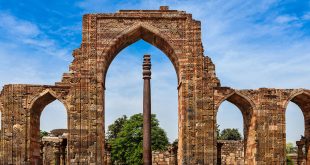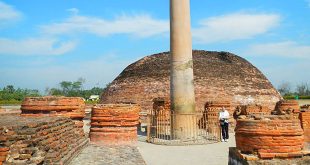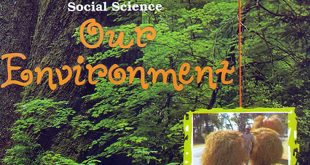Question: How do we feel in the company of the people who are very much like us? Answer: We feel safe and secure in the company of such people. Question: Define the term ‘prejudice’ with an example. Answer: Prejudice means to judge other people negatively or see them as inferior. …
Read More »NCERT 6th Class (CBSE) Social Science: Understanding Diversity – Quiz
NCERT 6th Class (CBSE) Social Science: Understanding Diversity – Quiz 15 Multiple Choice Questions related to NCERT 6th Class (CBSE) Social Science: Understanding Diversity – Quiz: The people of India, living in different parts, speak different languages. Diversity is the state of being varied or the state of being different …
Read More »NCERT 6th Class (CBSE) Social Science: Understanding Diversity
Question: Give an example of diversity in India. Answer: The people of India, living in different parts, speak different languages. Question: Give an example of unity in diversity among Indians. Answer: All Indians share the same national pride of having India as their motherland. Question: Why did Samir Do, the paper …
Read More »NCERT 6th Class (CBSE) Social Science: Flowering of Culture and Science – Quiz
NCERT 6th Class (CBSE) Social Science: Flowering of Culture and Science – Quiz 14 Multiple Choice Questions related to NCERT 6th Class (CBSE) Social Science: Flowering of Culture and Science – Quiz: The word Stupa means a mound. It is a Buddhist religious building. Amaravati was a place where a …
Read More »NCERT 6th Class (CBSE) Social Science: Flowering of Culture and Science
Question: When was the Iron Pillar made? Answer: It was made about 1500 years ago. Question: Mention the most striking feature of the Iron Pillar. Answer: The Pillar has not rusted in all these years. Question: What do you mean by the word ‘Stupa’? Answer: The word Stupa means a …
Read More »NCERT 6th Class (CBSE) Social Science: India from the 4th Century CE to the 7th Century CE – Quiz
NCERT 6th Class (CBSE) Social Science: India from the 4th Century CE to the 7th Century CE – Quiz 18 Multiple Choice Questions related to NCERT 6th Class (CBSE) Social Science: India from the 4th Century CE to the 7th Century CE – Quiz: We know about him from a …
Read More »NCERT 6th Class (CBSE) Social Science: India from the 4th Century CE to the 7th Century CE
Question: Who was Samudragupta? Answer: He was a famous ruler of the Gupta dynasty. Question: How do we know about him? Answer: We know about him from a long inscription, which is a poem in Sanskrit composed by his court poet, Harishena. Question: Where is this poem inscribed? Answer: This poem …
Read More »NCERT 7th Class (CBSE) Social Science: The Human Environment: Settlement, Transport and Communication
Question: What do you understand by the term human settlement? How did settlements emerge? Answer: Human settlements refer to the locations where people build their homes. Around these settlements human communities develop. A community is a group of people living in a particular area and bound by a common culture …
Read More »The Human Environment: Settlement, Transport and Communication Quiz
NCERT 7th Class (CBSE) Social Science: The Human Environment: Settlement, Transport and Communication Quiz 15 Multiple Choice Questions related to NCERT 7th Class (CBSE) Social Science: The Human Environment: Settlement, Transport and Communication Quiz: Chapter 07 A cluster of houses form a settlement. Settlements are classified into rural and urban …
Read More »NCERT 7th Class (CBSE) Social Science: The Atmosphere – Quiz
NCERT 7th Class (CBSE) Social Science: The Atmosphere – Quiz 15 Multiple Choice Questions related to NCERT 7th Class (CBSE) Social Science: The Atmosphere – Quiz: The atmosphere regulates the temperature of the Earth, protects life from harmful rays from the Sun and also contains oxygen and moisture that are essential …
Read More » Class Notes NCERT Solutions for CBSE Students
Class Notes NCERT Solutions for CBSE Students






